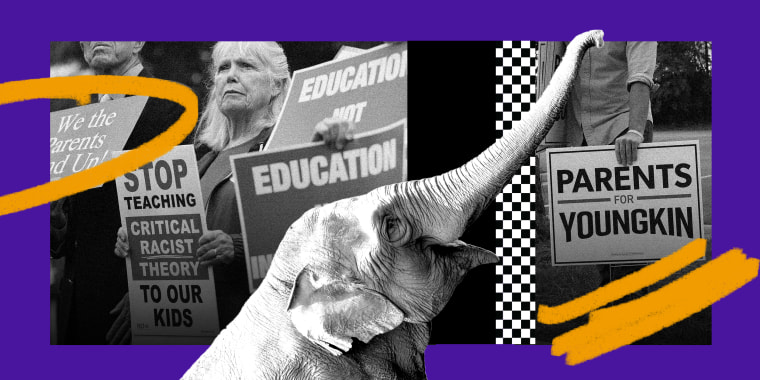School board elections across the country Tuesday will test the power of Republicans’ ahistorical, anti-science rhetoric following months of conservative attacks on nonwhite educators, lesson plans discussing racism and inequality, and pandemic-era health requirements.
Fourteen states are holding school board elections, from California to New Jersey, and Minnesota to Texas. Republicans across the country are hoping their efforts to gin up local, conservative outrage over schools translates to a tea party-like wave sweeping them into power in next year’s midterms and beyond. (They’re also creating contingency plans — like voter suppression laws — if that doesn’t work.)
The number of school board recall efforts skyrocketed this year, according to data recorded by Ballotpedia, a website that tracks U.S. elections. There have been at least 84 recall efforts this year — more than triple the average over the past 14 years. And that energy alone is enough to encourage Republicans, given school board races usually garner little attention. Voter turnout for such elections hovers around a “discouragingly low” rate of 5 to 10 percent, the National School Boards Association reported last year.

Republicans have hitched their political prospects to mostly white, conservative anger at school officials. This is evident in politicians like Virginia gubernatorial candidate Glenn Youngkin, who’s focused his campaign almost singularly on attacking school curricula. But Republican dark money groups have also poured heaps of money into conservative school board candidates and education groups. And conservative strategists have been clear they see attacks over race-related lesson plans as a tactic to whip up the base.
But Tuesday’s school board elections shouldn’t only be seen as bellwethers of what’s to come for high-profile Republicans — not when the implications for the students and parents involved in each of these races are so serious.
Far-right control over the nation’s school boards will give conservatives across the country tremendous local power. Incoming school boards won’t just influence curricula; they’ll also be tasked with spending billions of dollars allocated for K-12 education in this year’s federal economic stimulus and spending bills. They’ll also be responsible for crafting regulations to keep students in their districts safe amid the pandemic — or not. And they’ll have jurisdiction over policies designed to protect — or torment — LGBTQ students, whose rights are being attacked across the country.
The results of Tuesday's school board elections will inevitably be seen by some as harbingers of where we’re headed as a country. But if Republicans are successful in installing their preferred school board candidates, conservative changes at the local level could take hold quickly and drastically.
Related posts:
Arizonans really want this policy, but Kyrsten Sinema won’t let them have it
Rep. Mo Brooks’s latest Jan. 6 remarks are just icing on the disgraceful cake
Trump spewed violent rhetoric after George Floyd murder. Facebook shrugged.
Head over to The ReidOut Blog for more.
